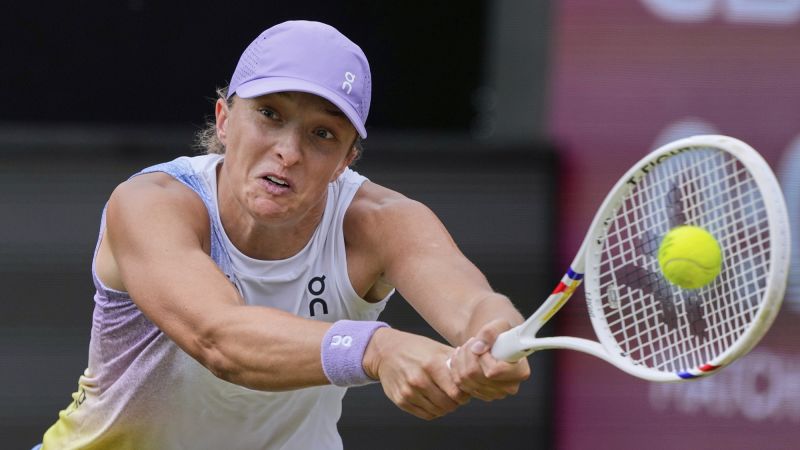Iga Świątek criticized the relentless tennis calendar on Sunday, with the former world number one saying thatplayersshould not be forced to compete in more than 20 tournaments a year to maintain their rankings.
Now ranked fourth in the world, Świątek described being trapped in a system where she had to choose between representing her country and focusing on herself after she reluctantly skipped Poland’s Billie Jean King Cup qualifier in April.
The 11-month grind has been one of the cornerstones of the lawsuit filed by theProfessional Tennis Players’ Association (PTPA)against the sport’s governing bodies in March after the union described it as “unsustainable.”
“The scheduling is super intense, it’s too intense. There’s no point for us to play over 20 tournaments in a year,” Świątek told reporters when asked about the biggest challenge to players in terms of mental health.
“Sometimes, we need to sacrifice playing for your country because we need to keep up with playing these WTA 500s, for example, because we’re going to get a zero in the ranking.
“I think these kind of obligations and the rules about mandatory tournaments just put pressure on us … I think people would still watch tennis, maybe even more, if we played less tournaments. The quality would be better.”
Świątek is the eighth seed atWimbledonthis year and she faces Polina Kudermetova in the first round on Tuesday.
The clay court specialist with fourFrench Opencrowns fell in the semifinals atRoland Garros this yearand she quickly switched her focus to grass which has historically been her weakest surface.
She reached her first grass court final on Saturday at the Bad Homburg Open where she was left in tears after losing to top seed Jessica Pegula, but Świątek is happy with her improvement on grass as she comes to grips with the faster surface.
“It’s not like a huge change. It’s not like 180 degrees change. I wouldn’t say now suddenly everything is perfect because it’s still a difficult surface. It’s still tricky,” Świątek said.
“Every year, it feels like it’s a little bit easier to get used to the surface and then you have more time to just develop as a player.”
